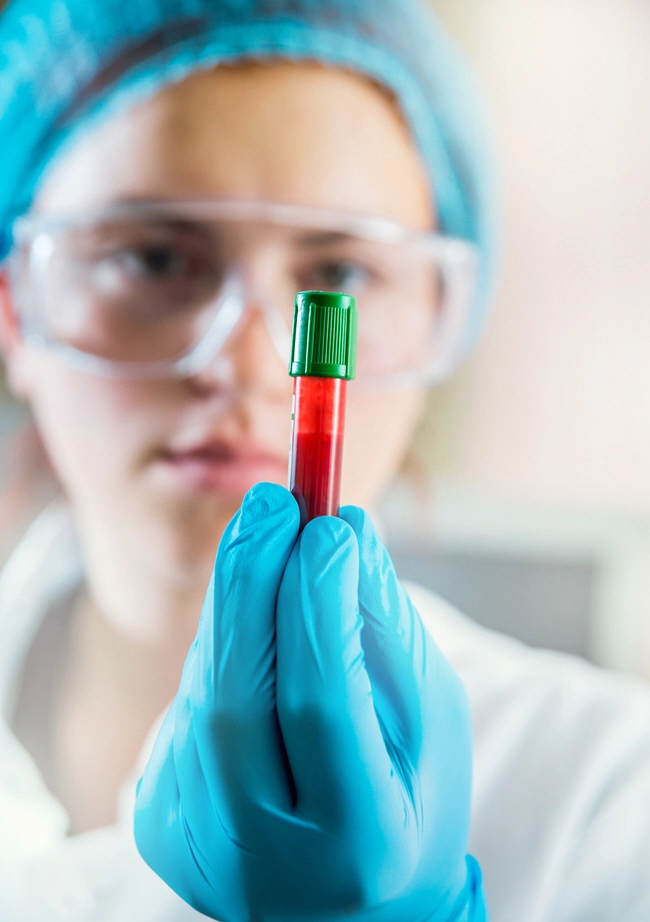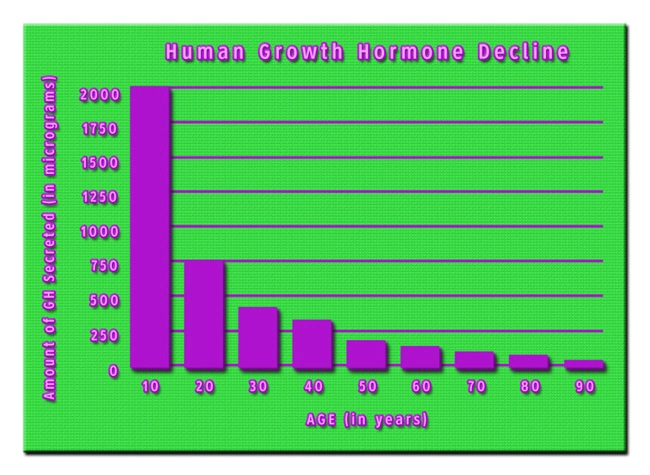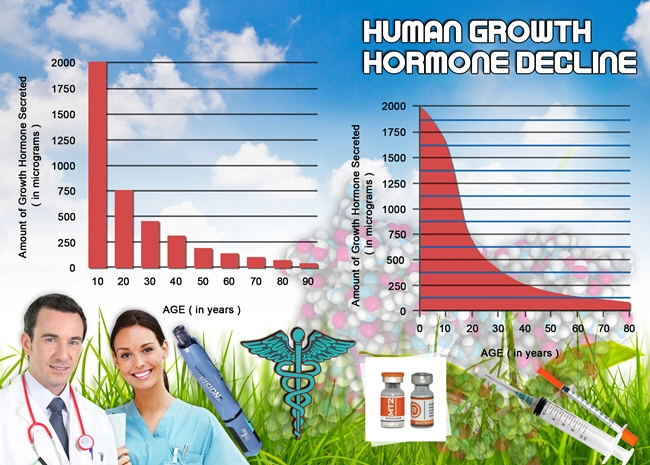
Introduction
Autoimmune disorders, where the body's immune system mistakenly attacks its own tissues, can significantly impact various organ systems, including the urological system. In American males, these conditions can lead to a range of urological complications that require specialized management strategies. This article delves into the complexities of urological health in this demographic, offering insights into effective management techniques and strategies to improve patient outcomes.
The Impact of Autoimmune Disorders on Urological Health
Autoimmune diseases such as rheumatoid arthritis, systemic lupus erythematosus, and Sjögren's syndrome can directly affect the urinary tract and related organs. In American males, these conditions may manifest as interstitial cystitis, prostatitis, or even erectile dysfunction. The inflammatory processes inherent in autoimmune disorders can lead to tissue damage and chronic pain, significantly impacting quality of life.
Common Urological Complications
Among the most prevalent urological issues faced by American males with autoimmune disorders are urinary tract infections (UTIs), bladder dysfunction, and sexual health problems. UTIs can be more frequent and severe due to compromised immune function, while bladder dysfunction may result from nerve damage or inflammation. Sexual health issues, including erectile dysfunction, can arise from both the physical effects of the disease and the psychological burden it imposes.
Strategies for Managing Urological Complications
Effective management of urological health in this population involves a multifaceted approach. **Pharmacological interventions** such as anti-inflammatory drugs and immunosuppressants can help control the underlying autoimmune activity. For UTIs, antibiotics may be necessary, though care must be taken to avoid overuse, which can lead to resistance.
**Lifestyle modifications** play a crucial role as well. Hydration, dietary adjustments to reduce bladder irritants, and regular physical activity can help mitigate symptoms. Pelvic floor exercises, in particular, can improve bladder control and sexual function.
**Psychological support** is another vital component. The chronic nature of autoimmune disorders can lead to depression and anxiety, which in turn can exacerbate urological symptoms. Counseling and support groups can provide emotional relief and practical coping strategies.
Improving Patient Outcomes
To enhance patient outcomes, a collaborative approach involving urologists, rheumatologists, and primary care physicians is essential. Regular monitoring and follow-up can help catch complications early and adjust treatment plans as needed. Patient education is also key, empowering individuals to take an active role in managing their health.
Innovative Treatments and Future Directions
Emerging treatments such as biologic therapies, which target specific components of the immune system, offer hope for more effective management of autoimmune disorders and their urological complications. Research into the microbiome's role in autoimmune diseases may also lead to novel therapeutic approaches. Additionally, telemedicine has become an invaluable tool, allowing for more frequent and convenient monitoring of patient health.
Conclusion
Urological health in American males with autoimmune disorders presents unique challenges that require a comprehensive and individualized approach to management. By combining pharmacological treatments, lifestyle adjustments, psychological support, and innovative therapies, healthcare providers can significantly improve patient outcomes. As research continues to advance, the future holds promise for even more effective strategies to manage these complex conditions.
Contact Us Today For A Free Consultation
Dear Patient,
Once you have completing the above contact form, for security purposes and confirmation, please confirm your information by calling us.
Please call now: 1-800-380-5339.
Welcoming You To Our Clinic, Professor Tom Henderson.

- 0001) Urological Health Guide: Understanding Conditions and Enhancing Wellness in American Men [Last Updated On: March 3rd, 2025] [Originally Added On: March 3rd, 2025]
- 0002) Preventing Urological Infections: Hydration, Hygiene, and Health Strategies for American Males [Last Updated On: March 16th, 2025] [Originally Added On: March 16th, 2025]
- 0003) Heart Health and Urology: Vital Connections in American Men's Well-being [Last Updated On: March 18th, 2025] [Originally Added On: March 18th, 2025]
- 0004) Urological Health and Fertility: Key Conditions, Diagnosis, and Treatment for American Males [Last Updated On: March 19th, 2025] [Originally Added On: March 19th, 2025]
- 0005) Urological Health Tips for American Men in the Workplace [Last Updated On: March 19th, 2025] [Originally Added On: March 19th, 2025]
- 0006) Genetics and Urological Health: Insights for American Men's Proactive Care [Last Updated On: March 19th, 2025] [Originally Added On: March 19th, 2025]
- 0007) Managing Urological Pain in Men: Causes, Diagnosis, and Treatment Strategies [Last Updated On: March 19th, 2025] [Originally Added On: March 19th, 2025]
- 0008) Urological Health Guide: Symptoms, Conditions, and Care for American Men [Last Updated On: March 19th, 2025] [Originally Added On: March 19th, 2025]
- 0009) Modern Urology Advances: Minimally Invasive, Personalized Care for American Males [Last Updated On: March 20th, 2025] [Originally Added On: March 20th, 2025]
- 0010) Smoking's Profound Impact on Urological Health in American Men: Risks and Cessation Benefits [Last Updated On: March 21st, 2025] [Originally Added On: March 21st, 2025]
- 0011) Urological Health and Insurance: Navigating Coverage for Men's Well-being [Last Updated On: March 21st, 2025] [Originally Added On: March 21st, 2025]
- 0012) Obesity's Impact on Urological Health in American Men: Risks and Management Strategies [Last Updated On: March 22nd, 2025] [Originally Added On: March 22nd, 2025]
- 0013) Exercise and Urological Health: Enhancing Wellness in American Men [Last Updated On: March 22nd, 2025] [Originally Added On: March 22nd, 2025]
- 0014) Hydration's Crucial Role in Urological Health for American Men: Tips and Insights [Last Updated On: March 22nd, 2025] [Originally Added On: March 22nd, 2025]
- 0015) Stress and Urological Health in American Males: Impacts and Management Strategies [Last Updated On: March 22nd, 2025] [Originally Added On: March 22nd, 2025]
- 0016) Urological Health Education: Vital for American Males' Well-being and Longevity [Last Updated On: March 23rd, 2025] [Originally Added On: March 23rd, 2025]
- 0017) Supplements Supporting Urological Health in American Men: Saw Palmetto, Beta-Sitosterol, Cranberry [Last Updated On: March 23rd, 2025] [Originally Added On: March 23rd, 2025]
- 0018) Urological Rehabilitation: Enhancing American Men's Health and Quality of Life [Last Updated On: March 23rd, 2025] [Originally Added On: March 23rd, 2025]
- 0019) Urological Health: Key to Successful Family Planning for American Males [Last Updated On: March 23rd, 2025] [Originally Added On: March 23rd, 2025]
- 0020) Urological Health in Sports: Risks, Prevention, and Management for Male Athletes [Last Updated On: March 23rd, 2025] [Originally Added On: March 23rd, 2025]
- 0021) Urological Health Guide for American Males: Conditions, Procedures, and Prevention [Last Updated On: March 23rd, 2025] [Originally Added On: March 23rd, 2025]
- 0022) Urological Health and Sleep: A Comprehensive Guide for American Men [Last Updated On: March 24th, 2025] [Originally Added On: March 24th, 2025]
- 0023) VA's Comprehensive Urological Care for American Male Veterans: Services and Support [Last Updated On: March 24th, 2025] [Originally Added On: March 24th, 2025]
- 0024) Urological Surgery Recovery Guide for American Males: Holistic Care and Tips [Last Updated On: March 24th, 2025] [Originally Added On: March 24th, 2025]
- 0025) Urological Health and Mental Well-being: A Holistic Approach for American Men [Last Updated On: March 24th, 2025] [Originally Added On: March 24th, 2025]
- 0026) Urological Health: Vital Preventive Care for American Men's Well-being [Last Updated On: March 25th, 2025] [Originally Added On: March 25th, 2025]
- 0027) Urological Health for American Males: Hygiene, Habits, and Holistic Care [Last Updated On: March 25th, 2025] [Originally Added On: March 25th, 2025]
- 0028) Urological Health: Importance of Early Detection and Screening for Young American Males [Last Updated On: March 25th, 2025] [Originally Added On: March 25th, 2025]
- 0029) Urological Health and Mental Well-being: A Holistic Approach for American Men [Last Updated On: March 25th, 2025] [Originally Added On: March 25th, 2025]
- 0030) Urological Health: Breaking Stigma and Addressing Psychological Impacts in American Males [Last Updated On: March 25th, 2025] [Originally Added On: March 25th, 2025]
- 0031) Urological Cancers in American Males: Risks, Detection, and Prevention Strategies [Last Updated On: March 26th, 2025] [Originally Added On: March 26th, 2025]
- 0032) Urological Health Strategies for American Men Over 50: Screening, Lifestyle, and Management [Last Updated On: March 26th, 2025] [Originally Added On: March 26th, 2025]
- 0033) Medications' Impact on Urological Health: Guidance for American Men [Last Updated On: March 26th, 2025] [Originally Added On: March 26th, 2025]
- 0034) Urological Health Essentials for American Males: Conditions, Screenings, and Lifestyle Impact [Last Updated On: March 26th, 2025] [Originally Added On: March 26th, 2025]
- 0035) Urological Health's Impact on American Men's Social Lives and Well-being [Last Updated On: March 26th, 2025] [Originally Added On: March 26th, 2025]
- 0036) Urological Health: Key to Longevity for American Men [Last Updated On: March 26th, 2025] [Originally Added On: March 26th, 2025]
- 0037) Managing Urological Health: Essential Travel Tips for American Men [Last Updated On: March 26th, 2025] [Originally Added On: March 26th, 2025]
- 0038) Technological Advances Revolutionizing Urological Diagnosis for American Males [Last Updated On: March 26th, 2025] [Originally Added On: March 26th, 2025]
- 0039) Dietary Guide for Enhancing Urological Health in American Men [Last Updated On: March 27th, 2025] [Originally Added On: March 27th, 2025]
- 0040) Environmental Impacts on Urological Health in American Males: Risks and Mitigation Strategies [Last Updated On: March 27th, 2025] [Originally Added On: March 27th, 2025]
- 0041) Managing Urological Health and Chronic Illness in American Men: Practical Strategies [Last Updated On: March 27th, 2025] [Originally Added On: March 27th, 2025]
- 0042) Urological Health Myths Debunked: Empowering American Men with Facts [Last Updated On: March 27th, 2025] [Originally Added On: March 27th, 2025]
- 0043) Exercise and Urological Health: Safe Practices for American Males [Last Updated On: March 27th, 2025] [Originally Added On: March 27th, 2025]
- 0044) Alcohol's Impact on Urological Health: Risks and Prevention for American Men [Last Updated On: March 27th, 2025] [Originally Added On: March 27th, 2025]
- 0045) Urological and Bone Health: A Vital Connection for American Males [Last Updated On: March 27th, 2025] [Originally Added On: March 27th, 2025]
- 0046) Urological Health and Immunity: Strategies for American Males [Last Updated On: March 28th, 2025] [Originally Added On: March 28th, 2025]
- 0047) Urological Health in U.S. Men's Campaigns: Importance, Barriers, and Strategies [Last Updated On: March 28th, 2025] [Originally Added On: March 28th, 2025]
- 0048) Urological Health and Skin Care: A Vital Connection for American Men [Last Updated On: March 28th, 2025] [Originally Added On: March 28th, 2025]
- 0049) Urological Health's Impact on American Men's Quality of Life: A Comprehensive Overview [Last Updated On: March 29th, 2025] [Originally Added On: March 29th, 2025]
- 0050) Urological Health Linked to Hearing Loss in American Males: Insights and Prevention [Last Updated On: March 29th, 2025] [Originally Added On: March 29th, 2025]
- 0051) Urological Health and Vision: Critical Connections for American Men's Well-being [Last Updated On: March 30th, 2025] [Originally Added On: March 30th, 2025]
- 0052) Urological Health: Empowering American Men's Sexual Wellness Through Education and Care [Last Updated On: March 30th, 2025] [Originally Added On: March 30th, 2025]
- 0053) Urological Health: Vital for Men's Well-being and Advocacy in the U.S. [Last Updated On: April 3rd, 2025] [Originally Added On: April 3rd, 2025]
- 0054) Urological Health Linked to Dental Care: Insights for American Men [Last Updated On: April 3rd, 2025] [Originally Added On: April 3rd, 2025]
- 0055) Urological and Respiratory Health Interplay in American Males: Impacts and Management [Last Updated On: April 3rd, 2025] [Originally Added On: April 3rd, 2025]
- 0056) Urological Health in American Men: Research, Impact, and Lifestyle Factors [Last Updated On: April 5th, 2025] [Originally Added On: April 5th, 2025]
- 0057) Urological Health: Impact, Policy Needs, and Advocacy for Men's Well-being [Last Updated On: April 7th, 2025] [Originally Added On: April 7th, 2025]
- 0058) Urological Health Education: Vital for American Men's Well-being and Proactive Care [Last Updated On: April 7th, 2025] [Originally Added On: April 7th, 2025]
- 0059) Urological Health's Impact on American Men's Careers: Proactive Management and Workplace Support [Last Updated On: April 8th, 2025] [Originally Added On: April 8th, 2025]
- 0060) Urological and Musculoskeletal Health: Vital Connections for American Men [Last Updated On: April 9th, 2025] [Originally Added On: April 9th, 2025]
- 0061) Urological and Neurological Health Nexus: Essential Insights for American Males [Last Updated On: April 9th, 2025] [Originally Added On: April 9th, 2025]
- 0062) Urological and Endocrine Health: A Vital Connection for American Males [Last Updated On: April 9th, 2025] [Originally Added On: April 9th, 2025]
- 0063) Urological and Digestive Health: Interconnected Systems and Holistic Care for American Males [Last Updated On: April 10th, 2025] [Originally Added On: April 10th, 2025]
- 0064) Integrating Urological Health into Men's Programs: Needs and Benefits for American Males [Last Updated On: April 11th, 2025] [Originally Added On: April 11th, 2025]
- 0065) Urological Health: Vital for American Men's Well-being and Longevity [Last Updated On: April 12th, 2025] [Originally Added On: April 12th, 2025]
- 0066) Urological Health's Impact on American Men and Family Dynamics [Last Updated On: April 12th, 2025] [Originally Added On: April 12th, 2025]
- 0067) Urological Health and Reproductive Wellness in American Men: A Comprehensive Guide [Last Updated On: April 12th, 2025] [Originally Added On: April 12th, 2025]
- 0068) Urological and Cardiovascular Health: Vital Connections and Preventive Strategies for American Males [Last Updated On: April 13th, 2025] [Originally Added On: April 13th, 2025]
- 0069) Urological Health: A Vital Component of Men's Wellness Initiatives in the U.S. [Last Updated On: April 15th, 2025] [Originally Added On: April 15th, 2025]
- 0070) Urological Health and Community Engagement: Impact and Management in American Men [Last Updated On: April 15th, 2025] [Originally Added On: April 15th, 2025]
- 0071) Urological Health Education: Empowering American Men Through Knowledge and Advocacy [Last Updated On: April 15th, 2025] [Originally Added On: April 15th, 2025]
- 0072) Urological Health's Impact on American Men's Social Well-being and Quality of Life [Last Updated On: April 16th, 2025] [Originally Added On: April 16th, 2025]
- 0073) Immune System's Crucial Role in Urological Health for American Males [Last Updated On: April 16th, 2025] [Originally Added On: April 16th, 2025]
- 0074) Urological Health's Impact on Mental Well-being in American Males [Last Updated On: April 18th, 2025] [Originally Added On: April 18th, 2025]
- 0075) Urological Health's Vital Role in American Males' Physical Well-being [Last Updated On: April 18th, 2025] [Originally Added On: April 18th, 2025]
- 0076) Urological Health: Essential Guide for American Men's Well-being and Prevention [Last Updated On: April 18th, 2025] [Originally Added On: April 18th, 2025]
- 0077) Urological Health: Vital for Men's Well-being and Quality of Life in the U.S. [Last Updated On: April 19th, 2025] [Originally Added On: April 19th, 2025]
- 0078) Urological Health and Emotional Well-being: A Holistic Approach for American Men [Last Updated On: April 20th, 2025] [Originally Added On: April 20th, 2025]
- 0079) Urological Health: Vital for American Men's Well-being and Research Focus [Last Updated On: April 21st, 2025] [Originally Added On: April 21st, 2025]
- 0080) Urological Health for American Men: Conditions, Screening, and Lifestyle Impact [Last Updated On: April 22nd, 2025] [Originally Added On: April 22nd, 2025]








